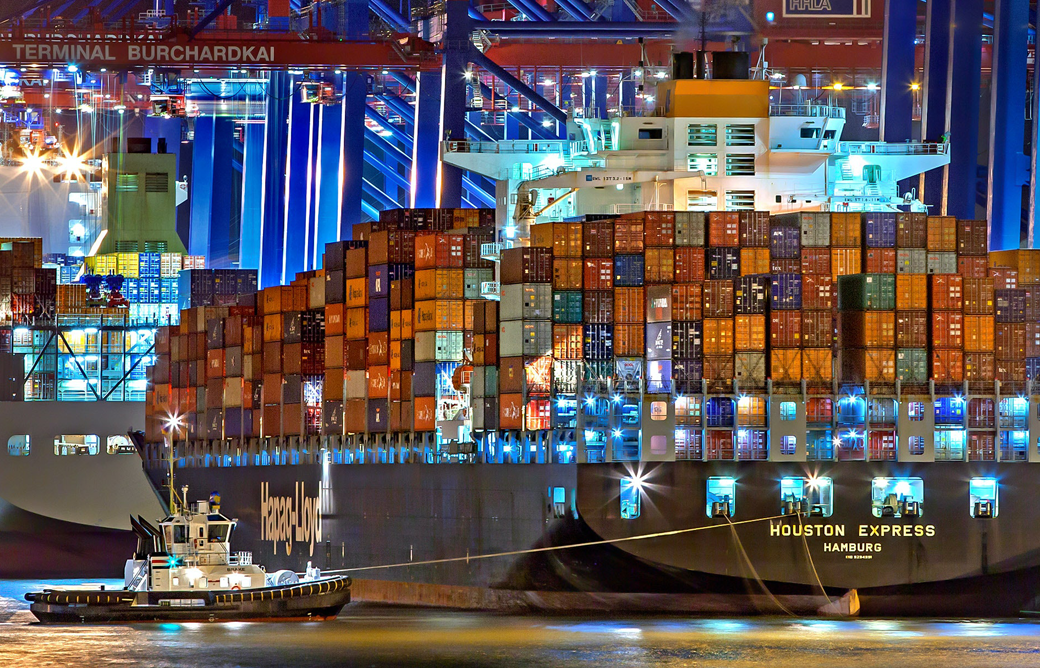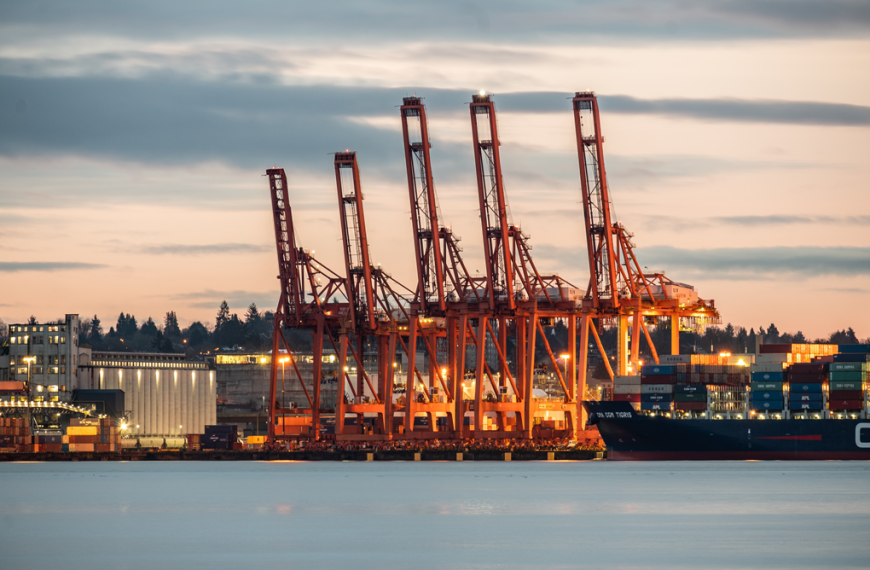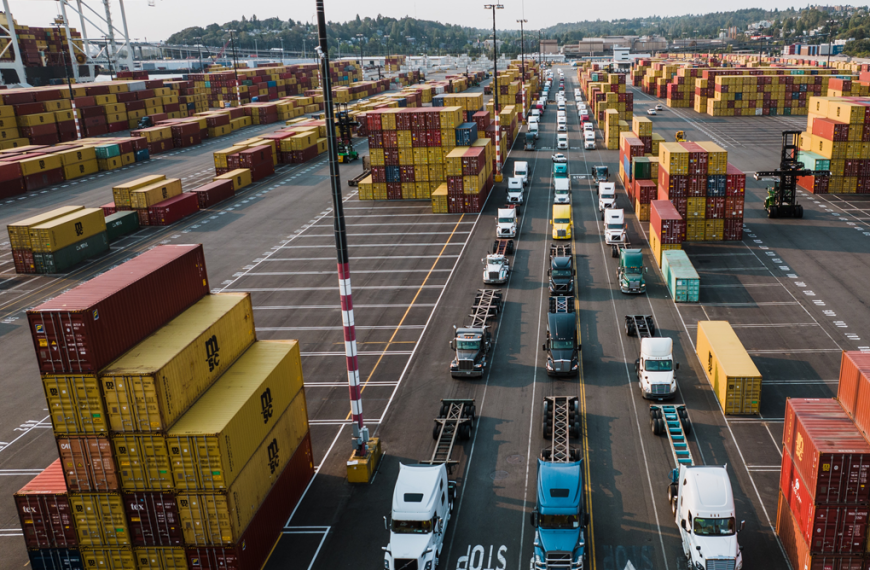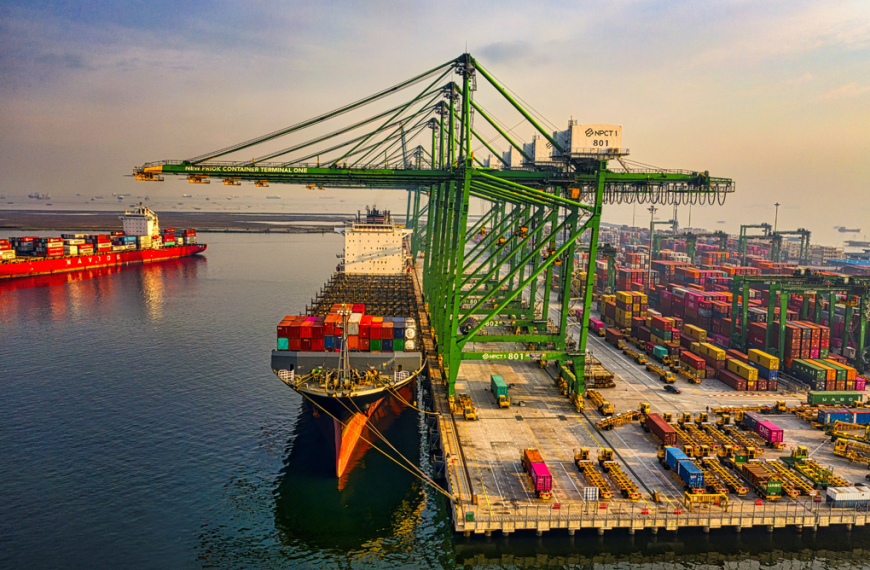As a business owner, choosing the right freight forwarder is a critical decision that can impact the success of your company. Freight forwarding involves the transportation of goods from one destination to another, and it encompasses a range of services, including customs clearance, warehousing, and distribution. There are several modes of transportation available for freight forwarding, including air freight, sea freight, and land transportation.
When choosing a freight forwarder, it’s important to consider several factors, including the type and quantity of goods you’ll be shipping, the destination and delivery timeline, and any special handling or regulatory requirements. By taking the time to carefully assess your business needs and research potential freight forwarders, you can ensure a smooth and successful shipping process for your business.
Assessing Your Business Needs
The first step in choosing the right freight forwarder for your business needs is to assess your specific shipping requirements. Here are some factors to consider:
1. Type and Quantity of Goods
The type and quantity of goods you’ll be shipping will have a significant impact on your choice of freight forwarder. For example, if you’re shipping perishable goods, you’ll need a freight forwarder with experience in refrigerated transport. Similarly, if you’re shipping oversized or heavy cargo, you’ll need a freight forwarder with expertise in project cargo handling.
2. Destination and Delivery Timeline
The destination and delivery timeline are also critical factors to consider when choosing a freight forwarder. If you’re shipping goods internationally, you’ll need a freight forwarder with experience in international shipping regulations and customs clearance. Similarly, if you need your goods delivered quickly, you’ll need a freight forwarder with a proven track record of on-time delivery.
3. Special Handling or Regulatory Requirements
Finally, it’s important to consider any special handling or regulatory requirements for your goods. For example, if you’re shipping hazardous materials, you’ll need a freight forwarder with experience in dangerous goods handling. Similarly, if your goods require special permits or certifications, you’ll need a freight forwarder with expertise in navigating these regulatory requirements.
By carefully assessing your business needs, you can narrow down your search for a freight forwarder and focus on those that specialize in the specific services and requirements that you need. In the next section, we’ll discuss how to research potential freight forwarders and evaluate their services and rates.
Choosing the right freight forwarder is a critical decision for any business. By taking the time to assess your business needs and research potential freight forwarders, you can ensure a smooth and successful shipping process. In the next sections, we’ll discuss how to compare services and rates, evaluate communication and customer service, and understand contract terms and conditions to help you make the best choice for your business needs.

Evaluating Services and Rates
Once you’ve narrowed down your list of potential freight forwarders based on your business needs, it’s time to evaluate their services and rates. Here are some factors to consider:
1. Modes of Transportation
The first factor to consider is the modes of transportation offered by the freight forwarder. As mentioned earlier, air freight and sea freight are the most common modes of transportation for freight forwarding. However, some freight forwarders may also offer land transportation options or a combination of different modes to meet your specific needs.
2. Network and Coverage
The next factor to consider is the freight forwarder’s network and coverage. A reputable freight forwarder should have a strong network of carriers and agents around the world to ensure reliable and efficient transportation of your goods. They should also have a good understanding of the local regulations and customs requirements in the countries where they operate.
3. Communication and Customer Service
Another important factor to consider is the freight forwarder’s communication and customer service. A good freight forwarder should provide clear and timely communication throughout the shipping process and be responsive to any questions or concerns you may have. They should also provide tracking information so you can monitor the status of your shipment.
4. Rates and Fees
Finally, it’s important to compare the rates and fees offered by different freight forwarders. However, it’s important to keep in mind that the cheapest option may not always be the best choice. Instead, consider the overall value provided by the freight forwarder, including their services, reputation, and experience.
Understanding Contract Terms and Conditions
Before signing a contract with a freight forwarder, it’s important to understand the terms and conditions of the agreement.
Here’s a table with a brief description of some common contract terms and conditions you may come across in freight forwarding:
| Term or Condition | Description |
|---|---|
| Incoterms | A set of internationally recognized rules that define the responsibilities of buyers and sellers in international trade transactions, including shipping, insurance, and customs clearance. |
| Force Majeure | A clause in a contract that relieves parties from performing their obligations due to circumstances beyond their control, such as natural disasters, war, or government actions. |
| Demurrage | A fee charged by carriers or ports for the detention of cargo beyond the allowed free time, often due to delays in customs clearance or other logistical issues. |
| Cargo Insurance | Insurance coverage that protects the cargo against loss or damage during transportation, including risks such as theft, damage, or natural disasters. |
| Carrier Liability | The legal responsibility of the carrier for the loss or damage of the cargo during transportation, subject to certain limitations and exclusions. |
| Bill of Lading | A legal document issued by the carrier that serves as a receipt of goods, a contract of carriage, and a document of title to the goods. |
| Customs Clearance | The process of getting the necessary customs documentation and approvals to allow the shipment to enter or exit a country, including payment of any applicable taxes and duties. |
Here are some key points to consider:
1. Liability and Insurance
Make sure to understand the freight forwarder’s liability and insurance policies. A reputable freight forwarder should provide liability coverage for loss or damage to your goods during transportation. You may also want to consider purchasing additional insurance for high-value or fragile items.
2. Payment Terms
Make sure to understand the freight forwarder’s payment terms, including any upfront fees or deposits required. You should also clarify any additional fees or charges that may apply, such as customs clearance fees or storage fees.
3. Contract Duration and Termination
Make sure to understand the duration of the contract and the process for terminating the agreement. You should also clarify any penalties or fees that may apply for early termination or cancellation.
4. Dispute Resolution
Finally, it’s important to understand the process for resolving disputes with the freight forwarder. Make sure to clarify the jurisdiction and governing law of the contract and the process for resolving any disputes that may arise.
By carefully evaluating the services and rates offered by different freight forwarders and understanding the terms and conditions of the contract, you can choose the right partner for your business needs and ensure a smooth and successful shipping process.

Reputation and Experience
When choosing a freight forwarder for your business needs, it’s important to consider their reputation and experience. Here are some factors to consider:
1. Reputation
One of the most important factors to consider when choosing a freight forwarder is their reputation. You can start by checking the company’s website and reading reviews and testimonials from previous clients. You can also check with industry organizations and regulatory agencies to ensure that the freight forwarder has a good reputation and a clean record.
2. Experience
Another important factor to consider is the freight forwarder’s experience. A freight forwarder with years of experience in the industry will have a better understanding of the regulations, documentation requirements, and logistical challenges involved in shipping goods internationally. They will also have established relationships with carriers and agents around the world, which can help ensure a smooth and efficient shipping process.
3. Industry Certifications and Accreditations
Industry certifications and accreditations can also be a good indicator of a freight forwarder’s reputation and experience. Look for freight forwarders that have obtained certifications such as ISO 9001 or accreditations from organizations like the International Air Transport Association (IATA) or the International Federation of Freight Forwarders Associations (FIATA).
4. Specialized Expertise
If your business has specialized shipping needs, such as hazardous materials or temperature-sensitive goods, it’s important to choose a freight forwarder with expertise in that area. Look for freight forwarders that have experience handling similar shipments and have specialized knowledge of the regulations and requirements involved.
5. Customer Service and Support
Finally, it’s important to consider the level of customer service and support offered by the freight forwarder. A good freight forwarder should be responsive to your needs and concerns, provide clear and timely communication, and offer support throughout the shipping process.
By considering the reputation, experience, industry certifications, specialized expertise, and customer service of different freight forwarders, you can choose the right partner for your business needs and ensure a successful and hassle-free shipping process.
Related Articles
Cost
Cost is an important factor to consider when choosing a freight forwarder for your business needs. Here are some tips to help you make a cost-effective choice:
1. Compare Quotes
One of the most effective ways to ensure that you get a good deal on shipping costs is to compare quotes from different freight forwarders. Request quotes from at least three different companies and compare them carefully to ensure that you are getting a fair price.
2. Understand the Costs
It’s important to have a clear understanding of the costs involved in shipping your goods. Freight forwarders may charge different fees for different services, such as handling, storage, and customs clearance. Make sure that you understand all of the costs involved before you make a decision.
3. Consider the Mode of Transport
The mode of transport you choose can also impact the cost of shipping. Air freight is generally more expensive than sea freight, but it may be a faster option for time-sensitive shipments. Consider the urgency of your shipment and weigh the benefits of different modes of transport against their costs.
4. Volume Discounts
Many freight forwarders offer volume discounts for businesses that ship large quantities of goods. If your business regularly ships large volumes of goods, ask the freight forwarder about their volume discounts and negotiate a lower rate.
5. Hidden Costs
Be aware of any hidden costs that may be associated with shipping your goods. For example, there may be additional fees for oversized or overweight shipments, or for goods that require special handling or documentation. Make sure that you understand all of the potential costs involved in shipping your goods before you make a decision.
6. Long-term Partnerships
Consider establishing a long-term partnership with a freight forwarder. This can help you negotiate lower rates over time and can also ensure that you receive consistent, high-quality service.
By carefully considering the costs involved in shipping your goods, comparing quotes from different freight forwarders, and understanding the potential hidden costs, you can choose a cost-effective and reliable partner for your business needs. Don’t forget to factor in the reputation, experience, specialized expertise, and customer service of the freight forwarder as well, as these factors can also impact the overall value of the service.
MDS Cargo & Afodel
MDS Cargo is a global logistics provider that specializes in air freight, sea freight, and land transportation. They have a wide network of agents and partners across the world, allowing them to provide seamless transportation solutions to their clients. MDS Cargo is known for their excellent customer service and their ability to handle complex shipments. They offer a range of services, including customs clearance, warehousing, and distribution.
Afodel is another well-known name in the freight forwarding industry. They are a leading provider of logistics and transportation services in Africa, with a focus on air freight and sea freight. They have a strong presence in West and Central Africa, and their network extends to other parts of the world. Afodel is known for their expertise in handling challenging shipments, such as oversized or hazardous goods. They also offer a range of value-added services, such as cargo insurance and packing.
When choosing between MDS Cargo and Afodel, there are several factors to consider. First, consider the type of shipment you need to transport. If you require air freight or sea freight services, both companies are well-equipped to handle your needs. However, if you require land transportation or specialized services, MDS Cargo may be the better choice.
Another factor to consider is the geographical coverage of each company. MDS Cargo has a global network of agents and partners, while Afodel has a strong presence in Africa. If you require transportation services within Africa, Afodel may be the better choice. However, if you require transportation services to other parts of the world, MDS Cargo may be a better fit.
Finally, consider the reputation and experience of each company. MDS Cargo and Afodel are both well-established names in the industry, with decades of experience. They have a track record of providing reliable and high-quality services to their clients.
In conclusion, choosing the right freight forwarder for your business needs is an important decision that requires careful consideration. MDS Cargo and Afodel are both excellent choices, with a range of services and a reputation for reliability. Consider your specific needs and requirements, and choose the company that best meets those needs. With the right freight forwarder, you can ensure that your shipments arrive on time and in excellent condition.
Final thoughts
In this guide, we’ve covered the key factors you need to consider when choosing a freight forwarder for your business needs. Remember, the right freight forwarder can make all the difference in the success of your business operations.
Here are some final tips to keep in mind:
- Look for a forwarder with experience in your industry: While many freight forwarders offer general logistics services, it’s always helpful to find one with experience in your specific industry. They will have a better understanding of the unique challenges and regulations that affect your business and can tailor their services to meet your needs.
- Don’t choose a forwarder based solely on price: While it’s important to stay within budget, don’t make the mistake of choosing a forwarder based solely on price. Quality of service should always be your top priority. A low-cost forwarder may end up costing you more in the long run if they don’t provide the level of service you require.
- Get multiple quotes: It’s always a good idea to get quotes from several forwarders before making a decision. This will give you a better understanding of the market rates for the services you need and help you make an informed decision.
- Check for licenses and certifications: Make sure the forwarder you choose has the necessary licenses and certifications to operate legally in your region. This will help you avoid any legal or regulatory issues down the line.
- Communication is key: Finally, make sure you choose a forwarder who communicates clearly and promptly. You want to work with someone who keeps you informed every step of the way and is easy to reach when you have questions or concerns.
By following these tips, you can find a freight forwarder who meets your business needs and helps you achieve your logistics goals. Remember, it’s always worth investing time and effort in finding the right partner for your business.
Frequently Asked Questions (FAQs)
What is the most important criteria to select a freight forwarder?
The most important criteria to select a freight forwarder are experience, expertise, reliability, and customer service. You need a freight forwarder that has been in the industry for a long time, knows the ins and outs of shipping, has a good reputation, and can provide you with excellent customer service.
How do you determine a freight forwarder?
To determine a freight forwarder, you can start by researching different companies online, reading reviews and testimonials from other customers, and checking their certifications and licenses. You can also ask for referrals from other businesses in your industry, and interview potential freight forwarders to assess their experience, expertise, and customer service.
What questions should I ask a freight forwarder?
When choosing a freight forwarder, you should ask them about their experience, expertise, services, rates, and customer service. You can also ask them about their certifications and licenses, their network of carriers and partners, and their tracking and reporting capabilities. It’s important to get a sense of their communication style and responsiveness, and to make sure they have the capacity to meet your specific shipping needs.
Who needs a freight forwarder?
Anyone who needs to transport goods internationally or across borders can benefit from using a freight forwarder. This includes businesses that import or export goods, manufacturers, wholesalers, retailers, and individuals who need to ship large or bulky items. Freight forwarders can help with customs clearance, documentation, packaging, and logistics, making the shipping process smoother and more efficient.













